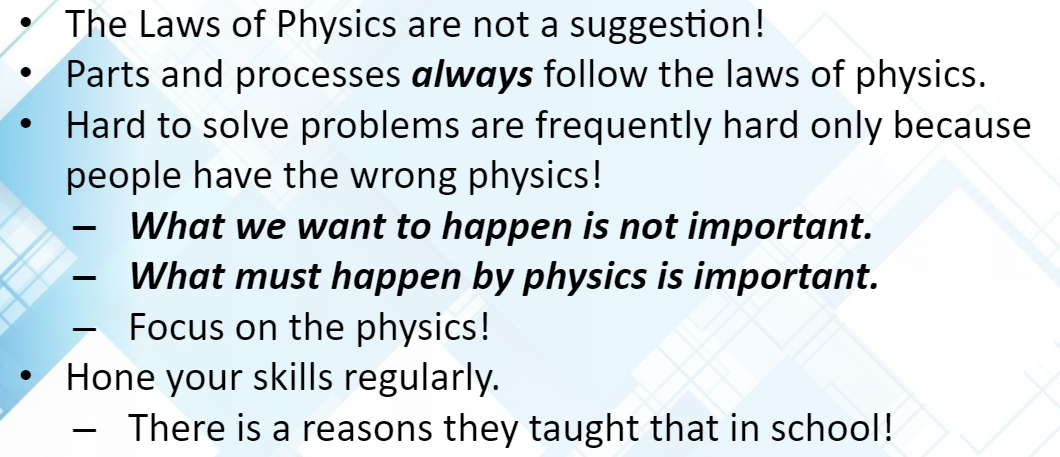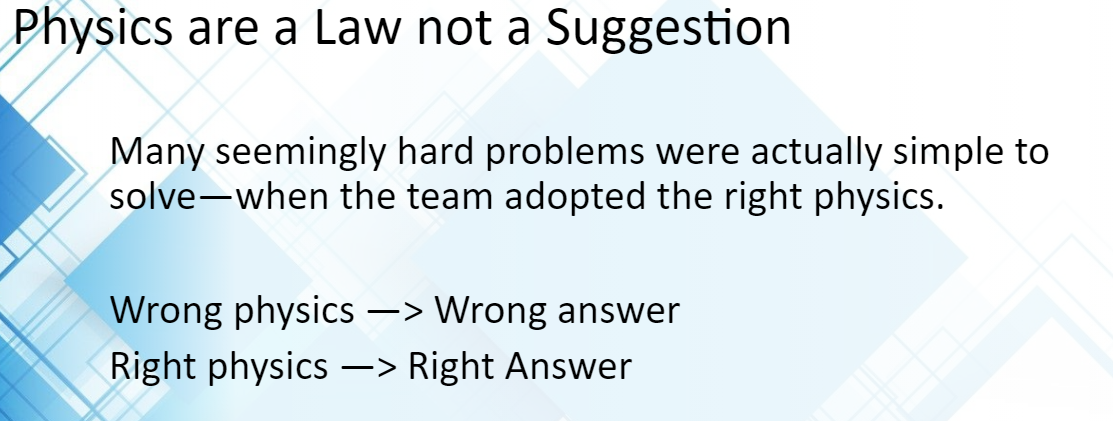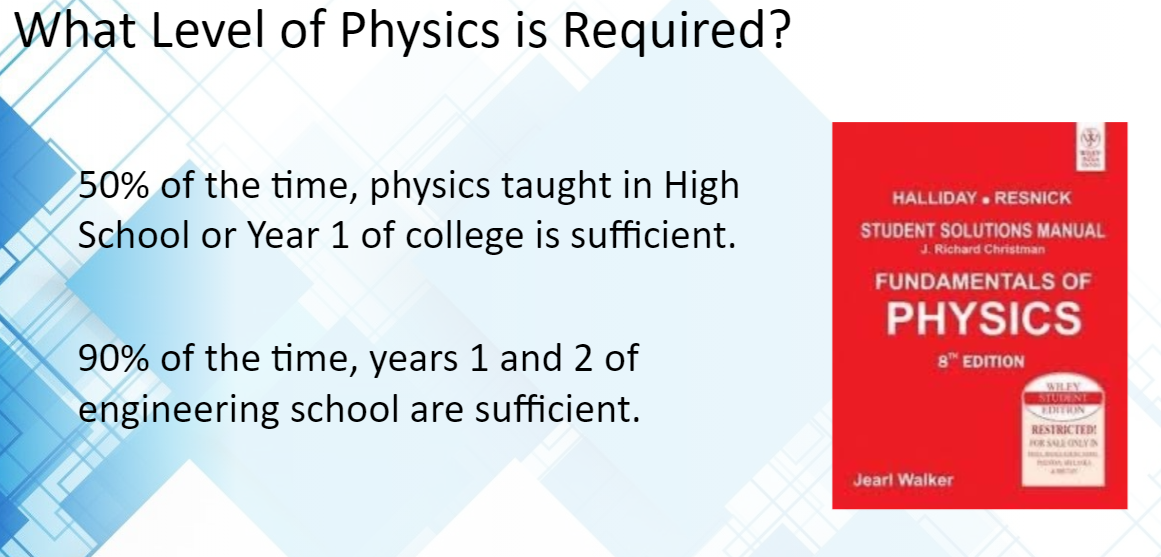

Just remember, they are called the laws of physics; not suggestions. Parts and processes always, always, always follow the laws of physics.
I've been pulled into many situations where people struggled to solve a problem but couldn't. Often, the problem was that they had the wrong physics. They were too focused on what they wanted to happen, while I focused on the physics of what must happen. What you want to happen isn't very important, what must happen according to physics is very important.
What I frequently found was that a problem would occur, and the team would look at what is wrong with the part, what's wrong with the process, what's wrong with the operator, what's wrong with the hypothesis. The physics of the design is always correct. Isn't that always true? Let's test it.
Too often I would find that there was a slight error in the physics of the design. Therefore, the part wasn't wrong, the process wasn't wrong, the operator wasn't doing anything wrong. It was an error in the starting design of the product.

You have to hone your skills regularly. That's where Stephen Covey said to Sharpen Your Saw - he means just working. There's a reason physics is taught in high school to as many people as possible.
You know, some people don't understand this. As a quick story, you know, I'm a storyteller, so when I first started at General Motors and was moving into my desk space I had a box of stuff. In the box were these things that you might recognize; books. I was putting them up into a case above my desk. While I was doing this, one of my colleagues, we'll call him Tony, came up to me and asked, "What are those?"
storyteller, so when I first started at General Motors and was moving into my desk space I had a box of stuff. In the box were these things that you might recognize; books. I was putting them up into a case above my desk. While I was doing this, one of my colleagues, we'll call him Tony, came up to me and asked, "What are those?"
"Well, They are books," I replied.
So he answered, "What kind of books are they?"
I was kind of mystified. You might not see it in the video below, but they were the classics: Physics, Introduction to the Mechanics of Solids, Electrical Circuits. They were all labeled with bright covers. I said, "They are engineering books."
"Well, why do you have those?" Tony asked.
I said, "Huh, that's interesting. You know Tony, I met you on my walk-through. I was hired as a leader, and you're on my team, right?"
He goes, "Yeah."
I return, "I'm going to be watching you really close. I have these books because we're going to engineer our parts and processes. We're not going to guess."
He said, "No, no, no, you take what we got. So we do what we did last time and we modify it to fit."
I said, "No, we're going to engineer."
I'll tell you, Tony didn't last. He just couldn't make the adaptation to be an engineer and use physics. My goal wasn't to be as good as last time. My goal was to be better, and to be better we had to change and master the physics of the parts and processes.
As I said, physics is a law, not a suggestion. If you have the wrong physics, you have the wrong answers. If you can get the right physics, you can get to the right answer faster. So focus on it.

Well as I mentioned, I'm a geek. Developing tools and methods in school was fun for me. I've gone to more school than anybody you've ever known. I used to say that college was the best ten years of my life, but now it's more like fifteen. I do want to say that I went there because I liked it and enjoyed it. Despite this, I've found that 50% of the time you only need the skills that you learned in your first year of physics from high school or college.
That's really interesting, 50% of the time you only need what's taught in the first year of physics, yet, people aren't going to the physics. So, therefore, they are struggling.

90% of the time, years 1 and 2 of engineering school are enough, so if you have an associate's degree, you probably have enough to do 90-% of the work that causes problems. When people have the wrong physics, they often forgot to check the physics. They assumed they knew, so make sure to review and keep your physics sharp.
Sharpen Your Saw, Master the Physics.
These Stories on CATIA
No Comments Yet
Let us know what you think